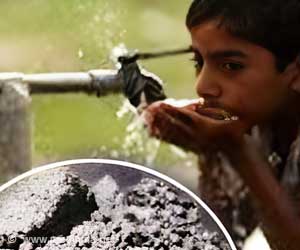Food security and water quality are threatened by the increased demand for phosphorus fertilizers. But, a plant-based diet can have a big impact on the phosphorus fertilizer requirements.

TOP INSIGHT
Phosphorus footprint is the amount of phosphorus mined to support one's diet. Shifting towards a plant-based diet can be effective to reduce mined phosphorus.
The loss of phosphorus to waterways, whether from agricultural fields through runoff or urban sewage through human excreta, can cause severe water quality degradation. This leads to eutrophication, harmful algal blooms, and impairment of our drinking water, recreational areas, and fisheries.
As the human population increases, our long-term food security and water quality are therefore threatened by the increased demand for phosphorus fertilizers. Dr. Geneviève Metson and her colleagues consequently investigated whether a change in human diet could be a potentially important intervention method. What would the effect be of Australian city residents shifting their diet towards a plant-based diet?
Their modeling efforts focused around calculating the phosphorus footprint, which is the amount of phosphorus mined to support one's diet. Using food intake data from the 2011 National Nutrition Survey, they calculated the citizens' total consumption of different food groups and their associated average phosphorus fertilizer required to produce these foods. To estimate the effect of a switch to a plant-based diet, they converted the meat, dairy, eggs, and seafood food groups to pulses (i.e. beans or legumes).
Their calculations showed that a shift towards a plant-based diet would lead to a small increase of 8% in phosphorus excreted by the city residents. A big effect, on the other hand, was found when looking at the change in the residents' phosphorus footprint: a decrease of 72%.
Dr. Metson explains: "The most unexpected result was just how big of an impact diet changes can have on phosphorus fertilizer requirements, and that if you are only considering phosphorus reuse as a management strategy, you could miss diet as being an important part of planning for a sustainable food system."
 MEDINDIA
MEDINDIA




 Email
Email





